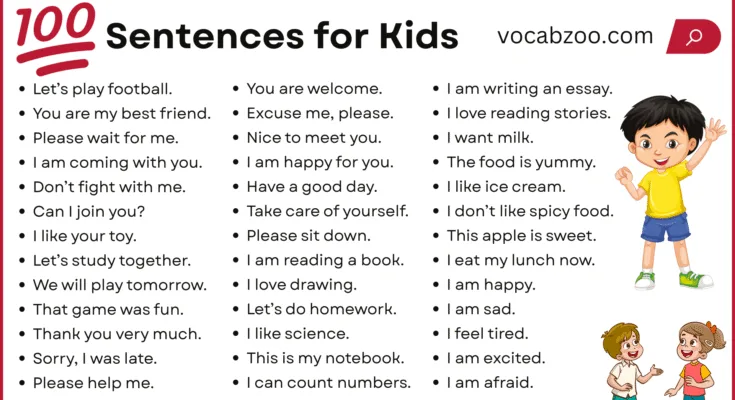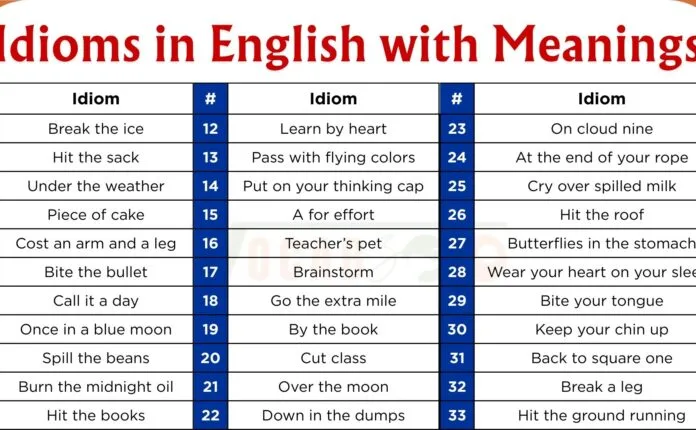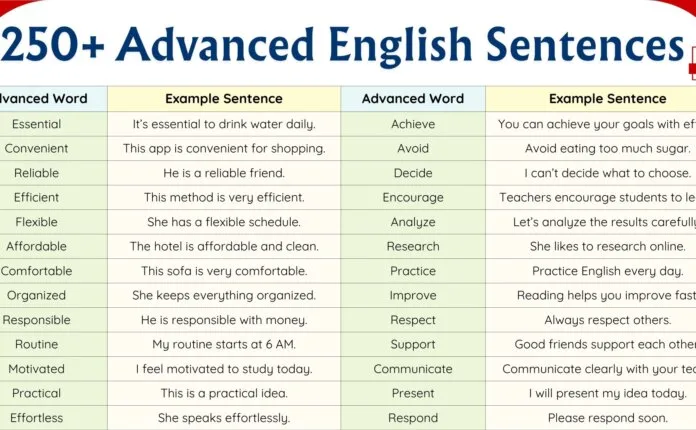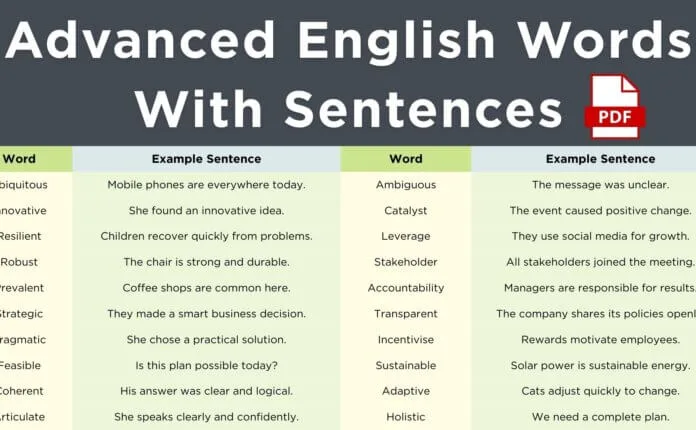Learning Simple Sentences for Kids in English helps children speak and write confidently from an early age. In this blog post, you will find over 100 sentences to practice and remember easily. Using these sentences improves speaking, reading, writing, and listening skills, making it easier for kids to communicate in daily life. By the end, children will be able to use Simple Sentences for Kids naturally in English.
What are Sentences for Kids?
English sentences for kids are short and simple lines that children can speak or write in their daily activities. These sentences help children to:
- Build confidence in speaking.
- Learn basic grammar naturally.
- Use everyday words in real situations.
Why are Sentences Important for Kids?
Children understand and learn fast when the sentences are:
- Short and clear
- Easy to pronounce
- Used in real life
Practising such sentences makes learning English a natural habit.
100+ English Sentences for Kids
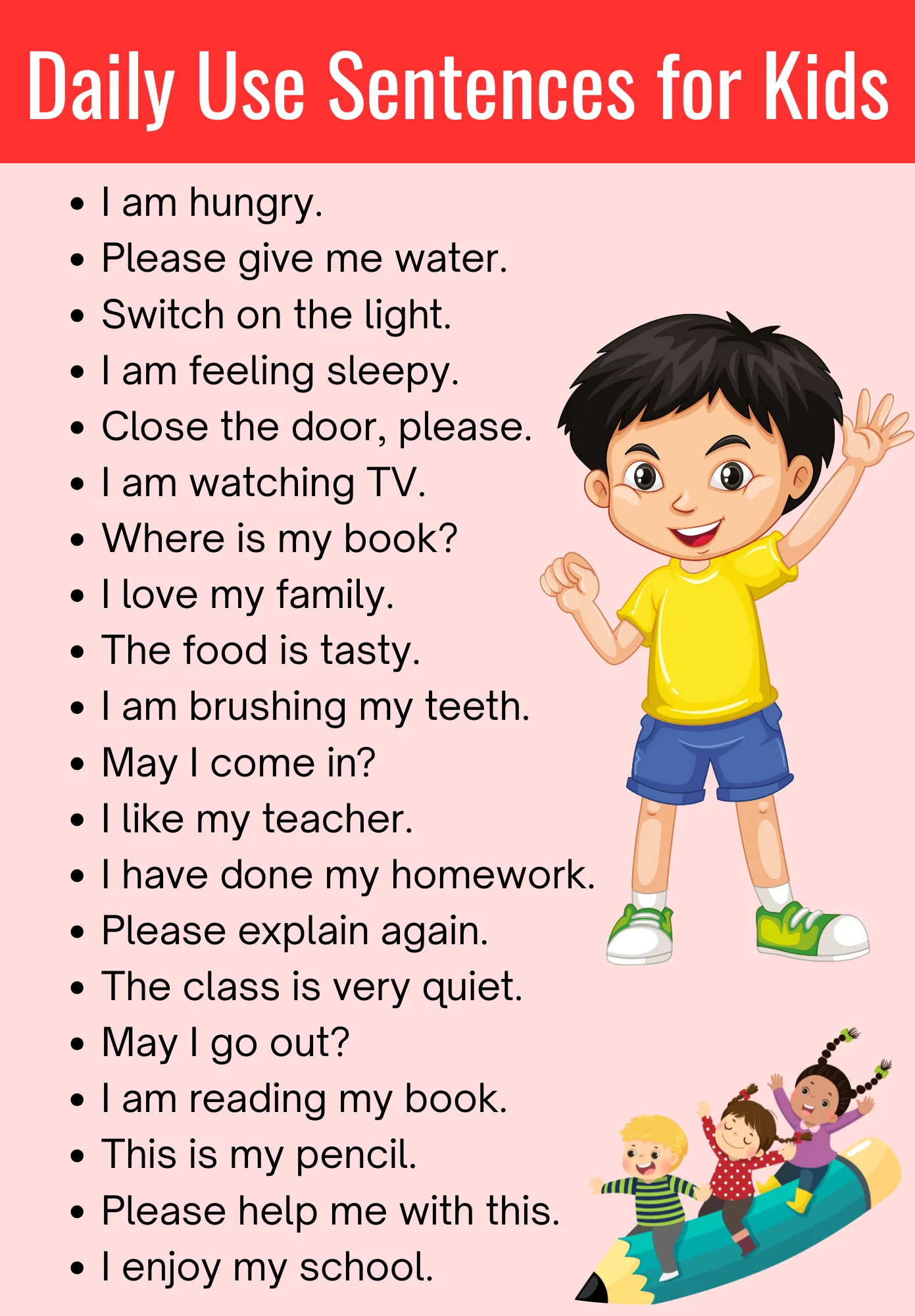
1. Daily Use Sentences for Kids at Home
- I am hungry.
- Please give me water.
- Switch on the light.
- I am feeling sleepy.
- Close the door, please.
- I am watching TV.
- Where is my book?
- I love my family.
- The food is tasty.
- I am brushing my teeth.
2. Sentences for School
- May I come in?
- I like my teacher.
- I have done my homework.
- Please explain again.
- The class is very quiet.
- May I go out?
- I am reading my book.
- This is my pencil.
- Please help me with this.
- I enjoy my school.
3. Sentences for Kids with Friends
- Let’s play football.
- You are my best friend.
- Please wait for me.
- I am coming with you.
- Don’t fight with me.
- Can I join you?
- I like your toy.
- Let’s study together.
- We will play tomorrow.
- That game was fun.
4. Polite Sentences for Kids
- Thank you very much.
- Sorry, I was late.
- Please help me.
- You are welcome.
- Excuse me, please.
- Nice to meet you.
- I am happy for you.
- Have a good day.
- Take care of yourself.
- Please sit down.
5. Sentences for kids for Learning and Study
- I am reading a book.
- Please give me a pen.
- I love drawing.
- Let’s do homework.
- I like science.
- This is my notebook.
- Please repeat the word.
- I can count numbers.
- I am writing an essay.
- I love reading stories.
6. Sentences for kids for Eating and Food
- I want milk.
- Please give me bread.
- The food is yummy.
- I like ice cream.
- May I have some juice?
- I don’t like spicy food.
- This apple is sweet.
- I eat my lunch now.
- I love chocolate cake.
- Please pass me the salt.
7. Sentences for Play and Fun
- Let’s play outside.
- I want to draw.
- Please give me the ball.
- That was a good game.
- I am happy today.
- Let’s sing together.
- I love playing cricket.
- Can we dance now?
- This is my toy.
- Let’s watch cartoons.
8. Sentences for Feelings
- I am happy.
- I am sad.
- I feel tired.
- I am excited.
- I am afraid.
- I am hungry.
- I am sleepy.
- I feel better now.
- I am angry.
- I am surprised.
9. Sentences for Good Habits
- Wash your hands.
- Brush your teeth.
- Keep the room clean.
- Share your toys.
- Always say thank you.
- Be kind to others.
- Eat healthy food.
- Don’t tell lies.
- Respect your parents.
- Help your friends.
10. Sentences for Everyday Talk
- What is your name?
- How are you?
- I am fine.
- Where are you going?
- What are you doing?
- I am at home.
- Who is your friend?
- Do you like games?
- Yes, I like it.
- No, I don’t like it.
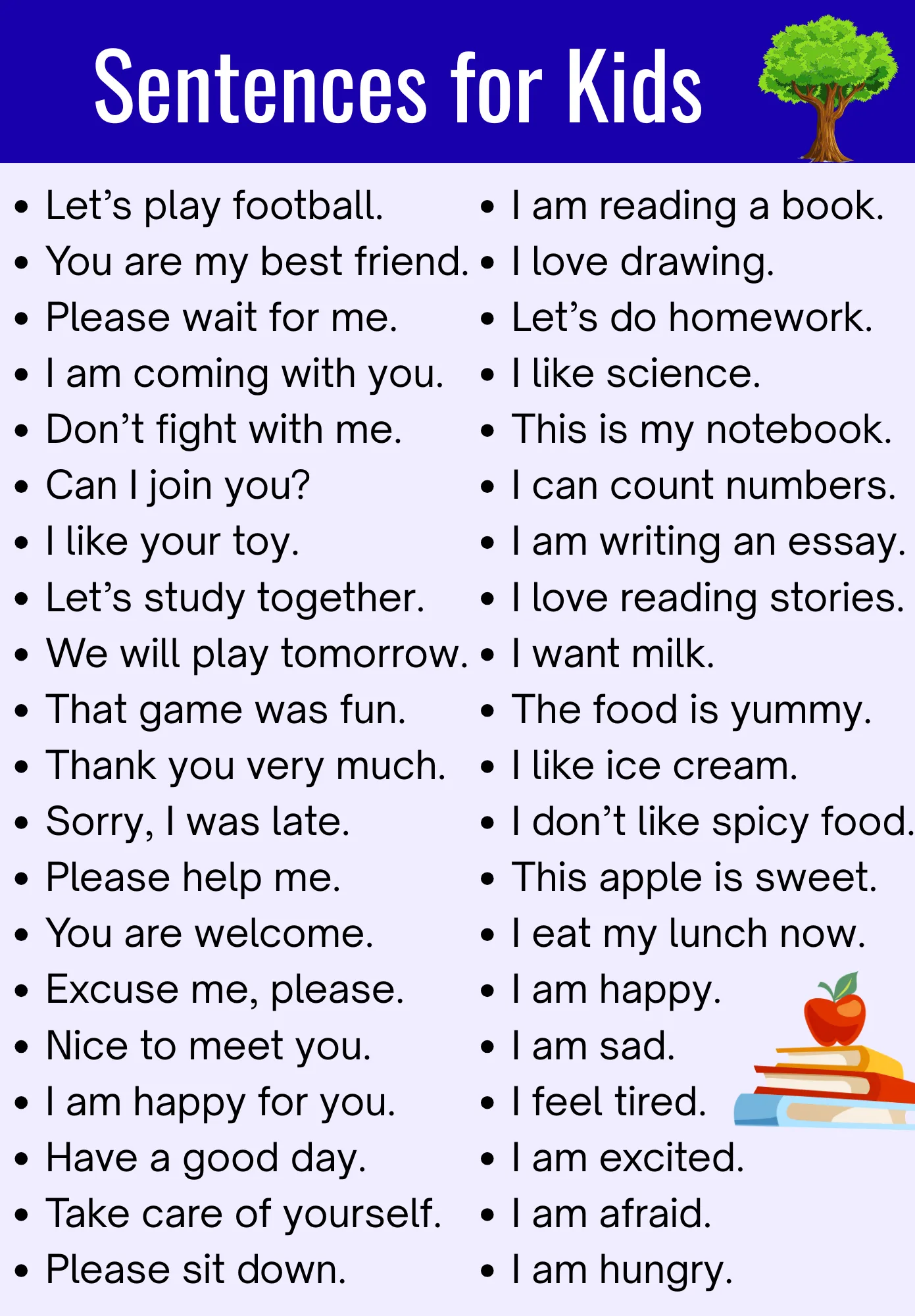
English sentences for kids are short, simple, and easy to use in daily life. They cover home, school, friends, play, food, and manners. Practising them daily will help children speak English naturally and with confidence.
FAQs
Why are simple English sentences important for kids?
Simple sentences are easy to learn and help children use English in real situations.
How can kids practise English sentences daily?
By speaking at home, in school, and during playtime with friends.
What kind of sentences should kids learn first?
Short, clear, and polite sentences like greetings, requests, and daily actions.
How many sentences should kids practise every day?
Even 5–10 new sentences daily can improve speaking skills quickly.
Can parents help kids in learning sentences?
Yes, parents can use these sentences at home and repeat them daily with kids.
Read More
- Conversation Sentences for Kids
- English Questions and Answers for Kids
- Animal Names for Kids with Pictures
